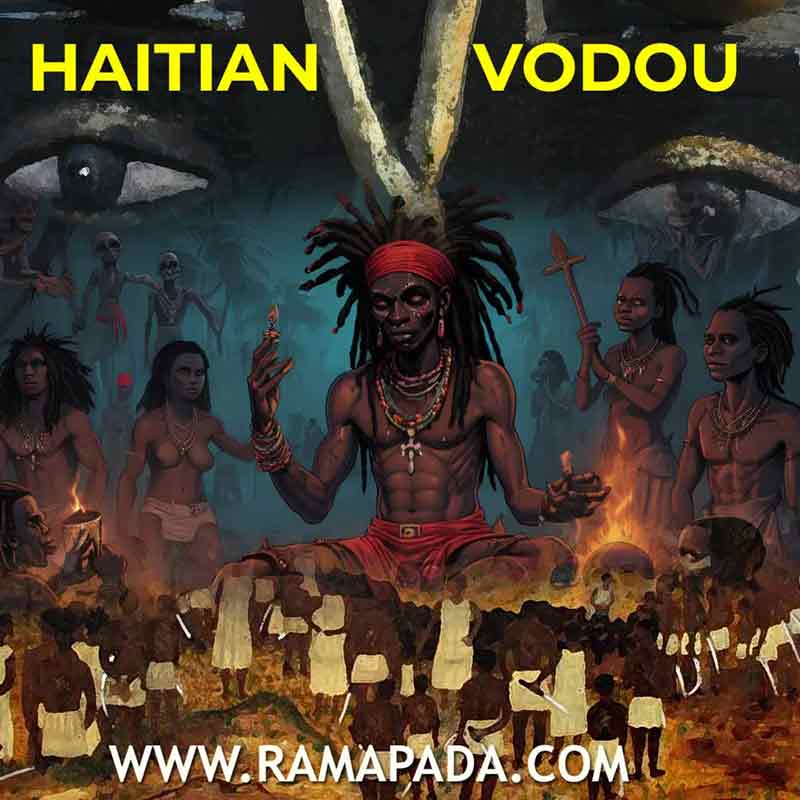Despite its vibrancy and complexity, Haitian Vodou has frequently been the target of misunderstandings. But beyond the Hollywood portrayals of zombies and curses lies a rich spiritual tradition rooted in resilience and cultural fusion.
A Blend of Beliefs
Haitian Vodou emerged during the brutal era of the Atlantic slave trade. Enslaved West Africans, ripped from their homelands, brought with them diverse religious practices. In Haiti, these traditions merged with elements of Catholicism, the religion of their French colonizers. This “syncretism” created a unique spiritual tapestry.
The Divine Duality – Haitian Vodou
At the heart of Vodou lies the belief in a supreme creator, Bondye, and a vast pantheon of spirits known as lwa. The lwa serve as intermediaries, each spirit actively embodying various aspects of life, from love and healing to fire and justice. Devotees cultivate relationships with specific lwa through offerings, rituals, and song.
Ritual Rhythms
Vodou ceremonies are dynamic and immersive experiences. The rhythmic pulse of drums, hypnotic chants, and intricate dances create a sacred space where devotees connect with the lwa. A specially trained priest or priestess, called a houngan or mambo, guides the ceremony, ensuring proper communication with the spirits.
Beyond the Stereotypes
Vodou plays a vital role in Haitian life, offering solace, guidance, and a sense of community. It’s a religion of healing, with herbal remedies and rituals used for physical and spiritual well-being. Unfortunately, Vodou has been negatively portrayed in popular culture. It’s important to move beyond these stereotypes and appreciate the rich cultural and spiritual significance of this religion.
Serving the Spirits
Hounsi, initiates who are devoted to particular lwa families, form the core of Haitian Vodou communities. Led by experienced priests (houngan) and priestesses (mambo), these communities hold regular ceremonies to honor the lwa. Animal sacrifices, offerings of food and drink, and spirit possession are all part of the Vodou practice, aiming to create a harmonious relationship between the physical and spiritual realms.

